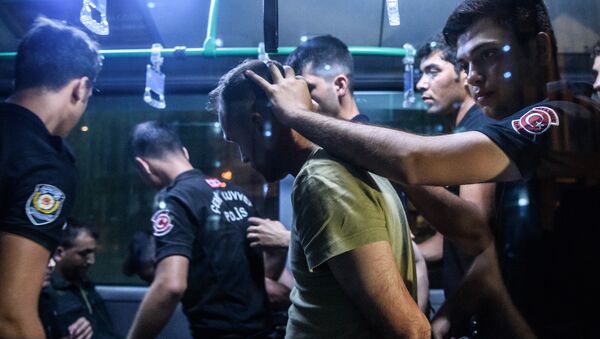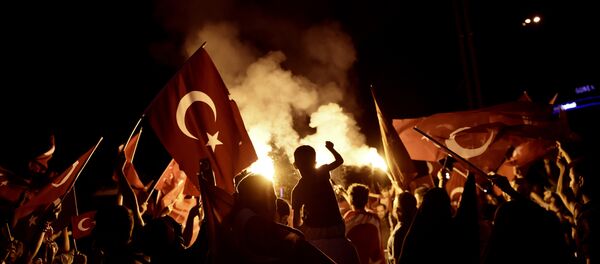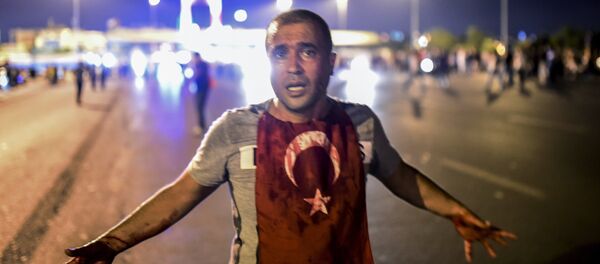“The Turkish authorities have decided to use this coup attempt to further implement its long-brewed plan to purge the ranks of the country’s Armed Forces,” Turkish journalist and academician of the Abant Izzet Baysal University Fatih Yaşlı told Sputnik Turkiye.
Thus, Fatih Yaşlı noted that the country’s leadership has jumped at the chance to purge the army' ranks and to create a new army as part of a broader buildup of a new regime in the country.
However, he added, the government will have to fill the vacuum left after the wave of arrests by enlisting supporters of the “nationalist” or “Eurasian” wing in the army.
In the country’s foreign policy, this wing demonstrates a tendency of estrangement with NATO, EU and US and rapprochement with the East – Russia and China, he noted.
Therefore a fuller picture is emerging: the ruling party is purging the army, not only from Gulen supporters, but from the elements who have influence over NATO and are close to the US.
And hence there were the statements of the Turkish authorities on the “US role in the set up and realization of the coup.”

'Turkey now is much closer to a civil war than ever before'
The journalist and academician also commented on the recently vocal rhetoric regarding arming Turkish civilians against the threat of future coups.
“In such a country as Turkey, where the level of polarization of the society is very high and where there are lots of social problems, the idea of arming the population against the threat of a future coup might have very negative consequences,” he warned.
“Turkey now is much closer to a civil war than ever before, and the latest events only prove it,” he said.
Fatih Yaşlı explained that it is not only about the coup attempt, but rather about its aftermath, when the crowds of people took to the streets. Violence in largely Alevi-populated neighborhoods, arsons and fights in the Syrian-populated neighborhoods, the abuse of the captured servicemen – all of this serves as a very disturbing signal.
Under the pretext of expression of the public will and the defense of democracy, a hefty destructive power, one of the most radical elements of political Islam, has been released into the streets. All of this signals at the growth of social instability in the Turkish society.
Fatih Yaşlı however, suggested that as a counterbalance to this dangerous rhetoric there should be another approach: “No, we are not rebels, but we are not with you”. And this approach should be developed into a democratic leftist movement.
With regards to the possible changes in the country’s foreign policy, he said that the government will go on with a balanced policy, however it would be quite hard to cut its support for the Islamists and jihadists in Syria. Besides, he added, Daesh terror attacks only illustrate how dangerous the consequences might be.
However, he said, Ankara should send some concrete and clear signals to Russia and Iran that there have been certain important changes in its Syrian policy.
For the Turkish leadership, there is a lot to scratch their heads over when considering their foreign policy, he concluded.




